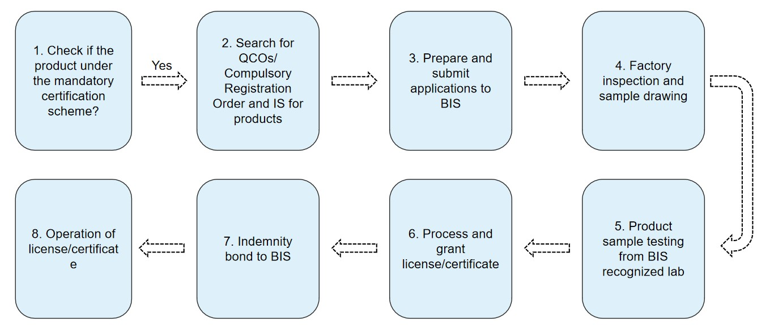Introduction:
In today’s globalized marketplace, product quality and safety are paramount. The ISI (Indian Standards Institute) certification of Bureau of Indian Standards (BIS) play a crucial role in ensuring that products meet the required standards for quality, safety, and performance. Let’s delve into the significance of BIS and ISI certification and how it benefits consumers and businesses alike.
BIS Certification:
The Bureau of Indian Standards (BIS) is the national standards body of India, responsible for developing and promoting standards across various industries. BIS certification is a mark of quality and conformity to the specified standards set by the organization. It covers a wide range of products, including electronics, textiles, chemicals, and more.
Benefits of BIS Certification:
1. Quality Assurance: BIS certification assures consumers that the product they are purchasing meets the defined quality standards. This helps build trust between consumers and manufacturers.
2. Safety Standards: BIS certification is particularly critical for products related to health and safety, such as electrical appliances and industrial machinery. Compliance with safety standards is mandatory to ensure the well-being of users.
3. Market Access: BIS certification is often a prerequisite for entering the Indian market. It demonstrates a commitment to quality and compliance, facilitating smoother market access for manufacturers.
4. Legal Compliance: Certain products, especially those listed under the compulsory certification scheme, must bear the BIS mark to be legally sold in India. Non-compliance can lead to penalties and market exclusion.
ISI Certification:
ISI, or Indian Standards Institute, is a certification mark for industrial products in India. It signifies that a product conforms to the Indian Standard (IS) and is compliant with the quality and safety specifications outlined by the BIS.
Key Aspects of ISI Certification:
1. Product Testing: ISI certification involves rigorous testing of products to ensure they meet the specific standards set by BIS. This may include material testing, performance evaluation, and safety assessments.
2. Periodic Audits: ISI certification is not a one-time process. Manufacturers must undergo periodic audits to ensure that their products continue to meet the prescribed standards over time.
3. Consumer Confidence: The ISI mark instills confidence in consumers, assuring them that the product has undergone thorough testing and complies with established quality benchmarks.
Requirement of BIS Certification
BIS certification scheme is primarily voluntary in nature. However, for a number of products compliance to Indian Standards is made compulsory by the Central Government under various considerations which are public interest, protection of human, animal or plant health, safety of environment, prevention of unfair trade practices and national security. For these products, the Government of India directs mandatory use of Standard Mark under a Licence or Certificate of Conformity (CoC) from BIS through Quality Control Orders (QCOs).
BIS maintains a database of products notified by Government of India on their website for the reference of stakeholders. This list can be accessed from the link [https://www.bis.gov.in/product-certification/products-under-compulsory-certification/]. A simplified flow chart of obtaining a BIS license is reproduced below

How Satyam Instrumentation can be your ISI certification consultant
Backed by a team of seasoned professionals and domain experts, Satyam Instrumentation brings unparalleled knowledge of Indian and International standards across various sectors. Whether you’re in manufacturing, healthcare, construction, or any other industry, we provide tailored solutions to meet your specific needs.
Join hands with Satyam Instrumentation to embark on a journey of excellence and distinction. Our unwavering commitment to quality, integrity, and innovation positions us as your ideal consultancy partner. Elevate your standards, enhance your reputation, and achieve sustainable growth with Satyam Instrumentation.
Contact us today to learn more about how we can elevate your organization to new heights.
Conclusion:
In a competitive and diverse market, BIS and ISI certifications provide a structured framework for maintaining product quality and safety. These certifications not only benefit consumers by ensuring the reliability of products but also offer a competitive edge to businesses in the Indian market. Manufacturers should view BIS and ISI certifications not just as regulatory requirements but as essential tools for building trust and credibility in the ever-evolving marketplace.




